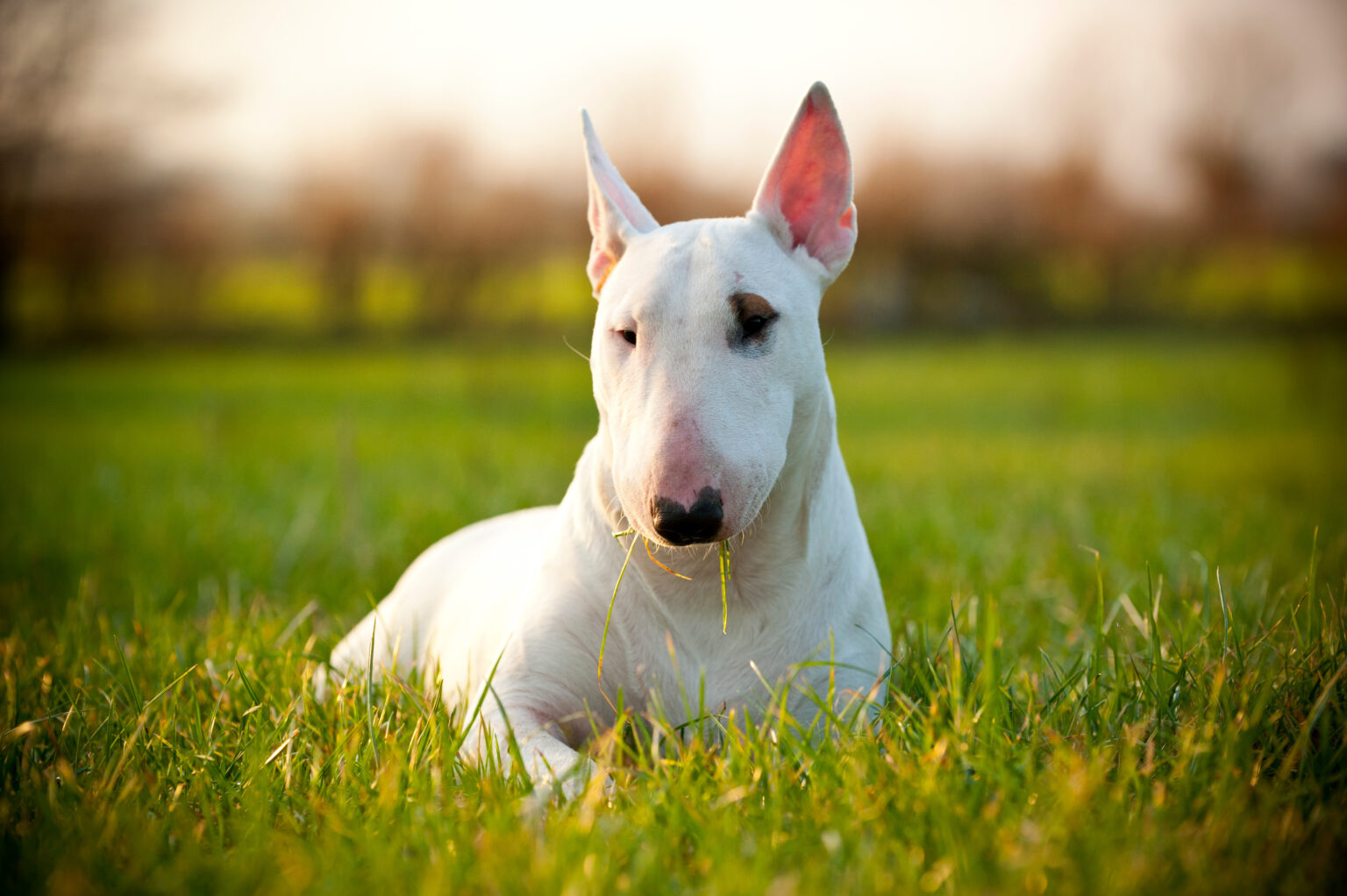Bull Terrier Dog Breed
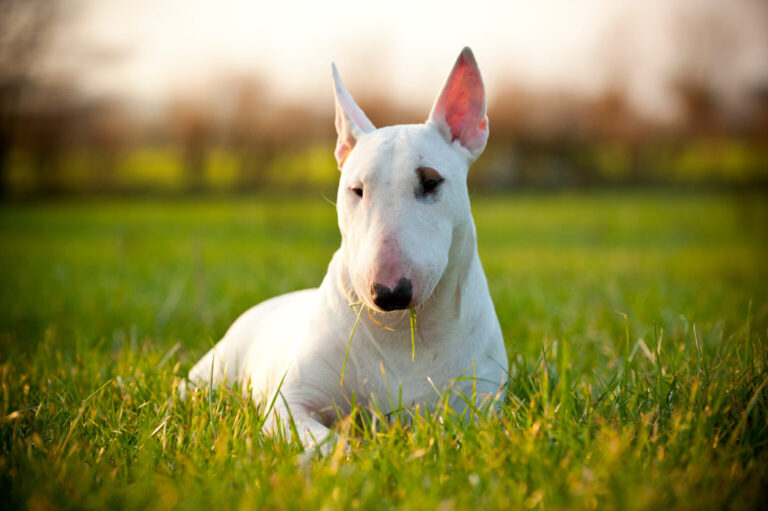
| Aspect | Details |
|---|---|
| Origin | United Kingdom |
| Birth Era | Early 19th century |
| Crossbreed | No, purebred |
| Temperament | Playful, charming, mischievous |
| Physique | Medium, 35-75 pounds, muscular |
| Coat | Short, flat, harsh to the touch coat |
| Lifespan | 12-13 years |
Originating from 19th-century England, the Bull Terrier is known in Japan for its muscular physique and distinctive egg-shaped head. This breed’s energetic and playful nature has made it popular in Japanese households for forming strong family bonds. While being sociable, Bull Terriers also possess a strong independent and stubborn streak. With proper training and socialization, they become loyal and affectionate members of the family.
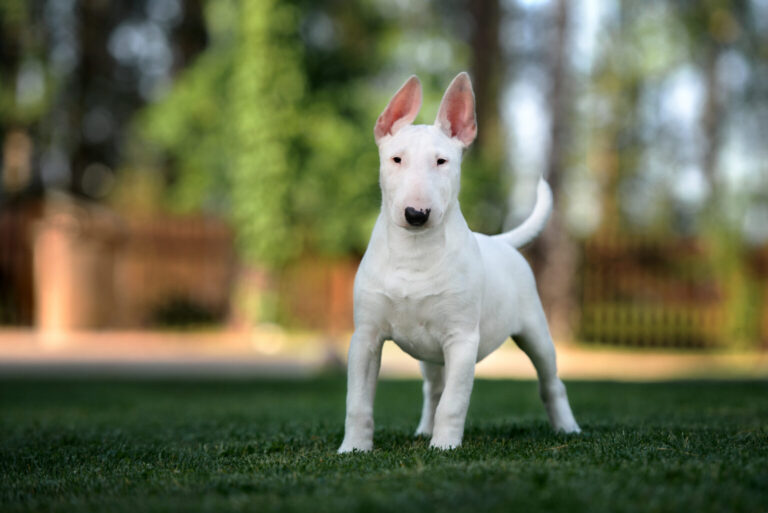
In Japan, the unique appearance and personality of Bull Terriers are cherished by many dog lovers, and they are particularly valued within the culture that emphasizes the role of pets as family members.
Coat Color
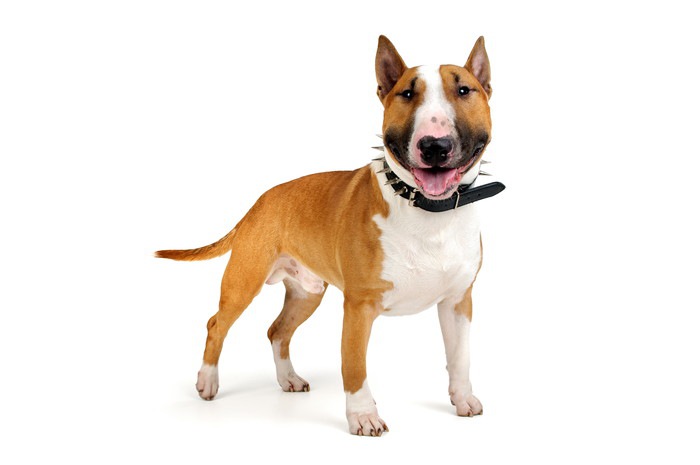
The diversity of Bull Terrier coat colors is also widely recognized as one of their charms in Japan. The wide range of colors from pure white to black, brown, red, and brindle, as well as the patchwork patterns of mixed colors, are elements that highlight the breed’s personality.
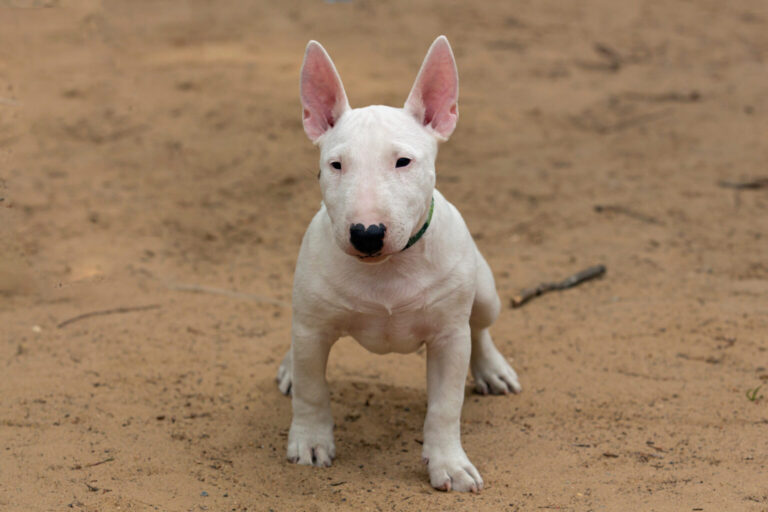
Particularly, the contrast between white and other colors is a striking feature that appeals greatly to Japanese owners, further accentuating the Bull Terrier’s individuality. In Japan, coat color is understood not just as a physical characteristic but also as having significant implications for genetic health. Consequently, when selecting Bull Terriers with healthy genetic backgrounds, experts and breeders consider coat color as an important factor in their decision-making process.
Coat Type
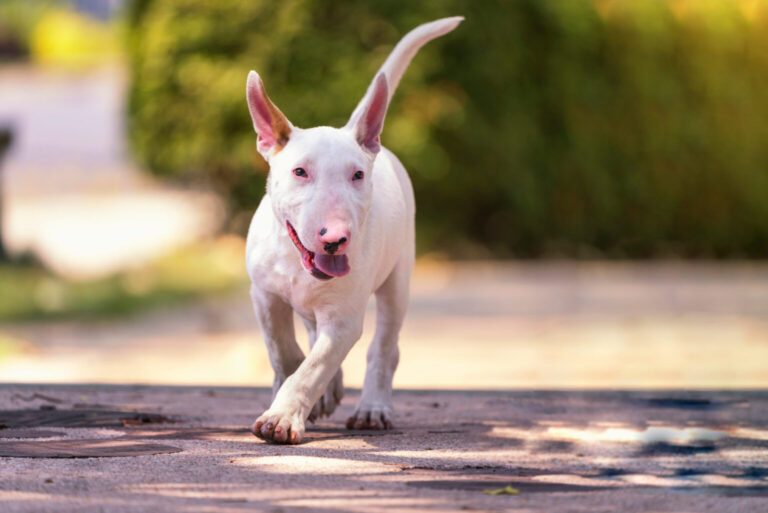
In Japan, the unique characteristics of Bull Terriers’ coats are particularly appealing to many owners. Their fur is short, extremely smooth, and glossy.
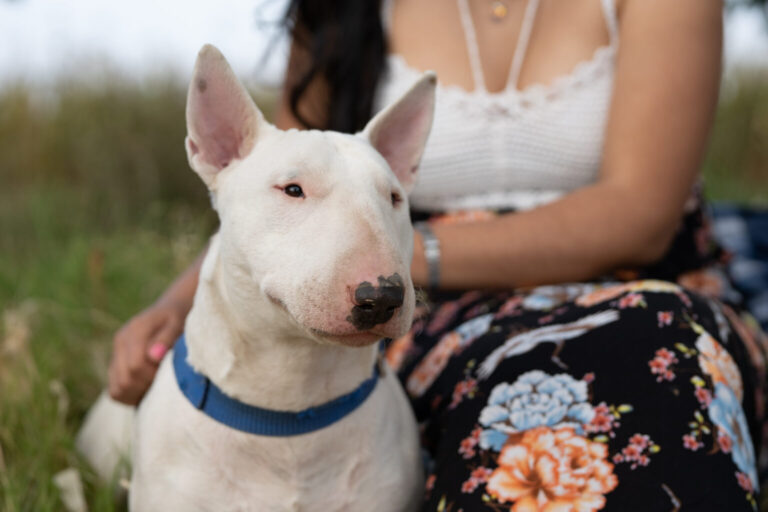
Japanese households appreciate the ease of care this type of coat offers. With just a few brushings per week, it’s possible to maintain cleanliness without much time investment. This convenience is a major advantage for busy Japanese families, making Bull Terriers an attractive choice for pet ownership.
Size
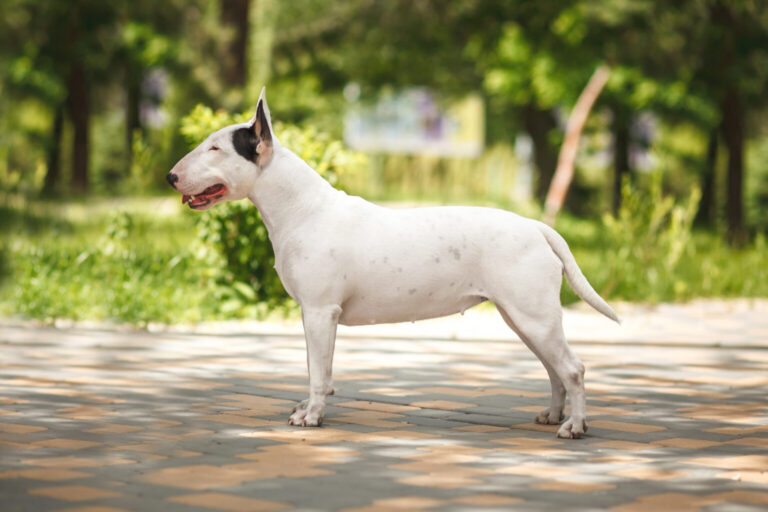
In Japan, the unique physique and medium size of Bull Terriers are considered one of their major attractions for owners. Male Bull Terriers generally have a shoulder height of about 17.7 inches to 21.7 inches (45 cm to 55 cm), while females are slightly smaller, around 17.7 inches (45 cm) in shoulder height.
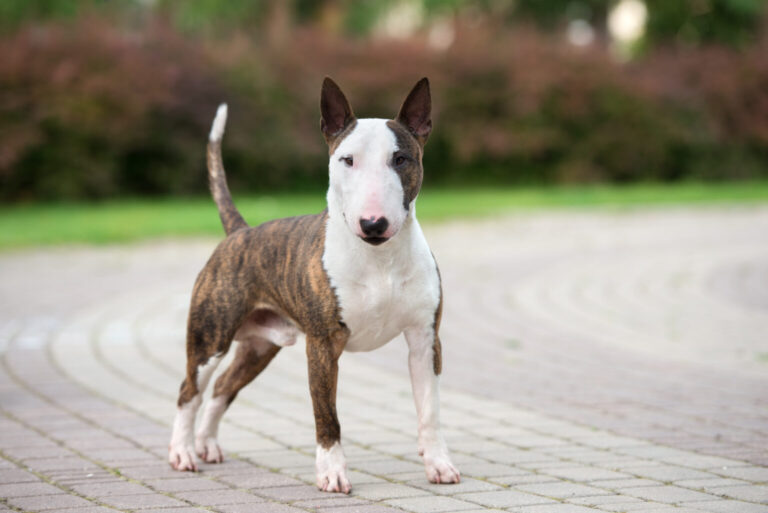
The breed’s muscular and robust body, along with its distinctive egg-shaped head, garners attention from Japanese dog enthusiasts. Regardless of size, Bull Terriers are known for their strength and high athletic ability, making them excellent partners for exercise and active play for their Japanese owners.
Weight
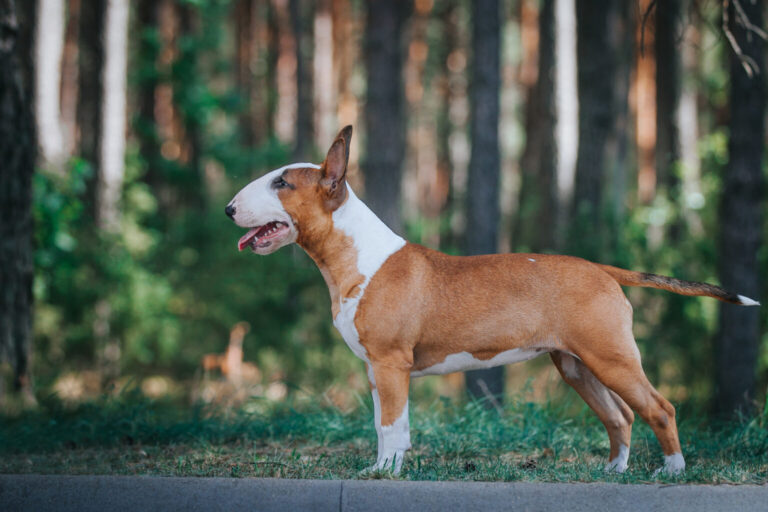
In Japan, managing the weight of Bull Terriers is extremely important for their health and happiness. Typically, the weight of an adult Bull Terrier ranges from 20 kg (about 44 pounds) to 30 kg (about 66 pounds), varying based on the dog’s size, gender, and genetic factors.
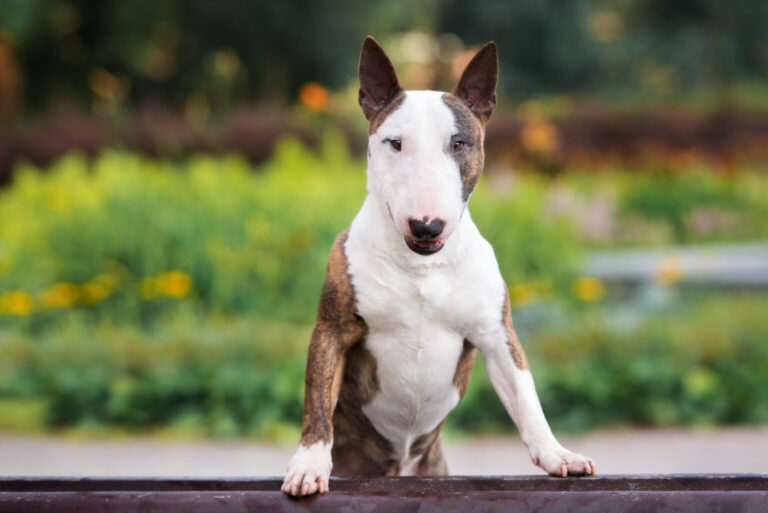
Japanese owners are attentive to maintaining a healthy weight tailored to each Bull Terrier, with regular weight checks and proper diet management. Weight management is considered essential for maintaining the health of Bull Terriers and preventing illnesses.
Lifespan
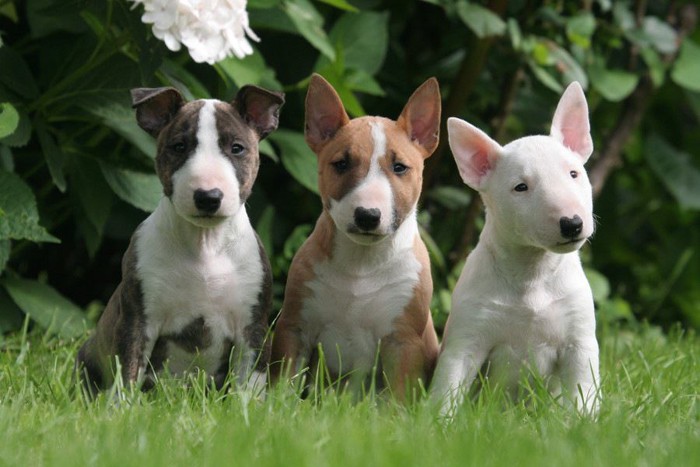
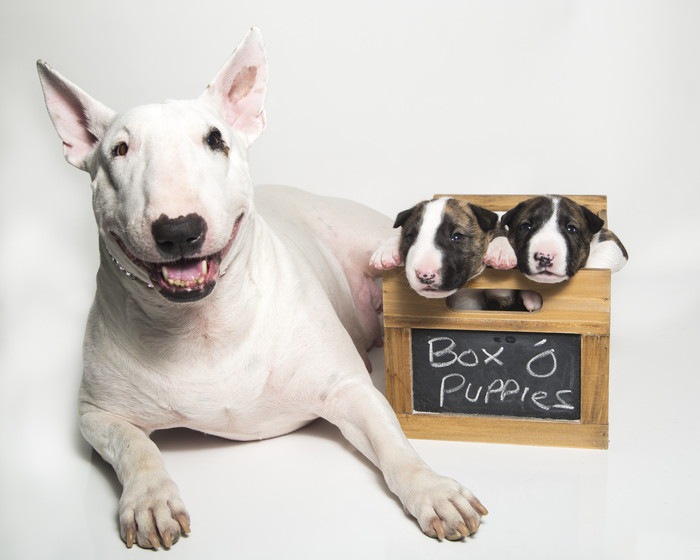
In Japan, the average lifespan of Bull Terriers is about 12 to 15 years, but Japanese owners highly value the longevity of their pets. With healthy lifestyle habits and proper care, Bull Terriers can live longer than the average expectancy. In Japan, a balanced diet, regular exercise, and routine health checks by veterinarians are considered key to longevity. These factors are crucial in maintaining the health of Bull Terriers and ensuring more time spent together with them.
Trainavility
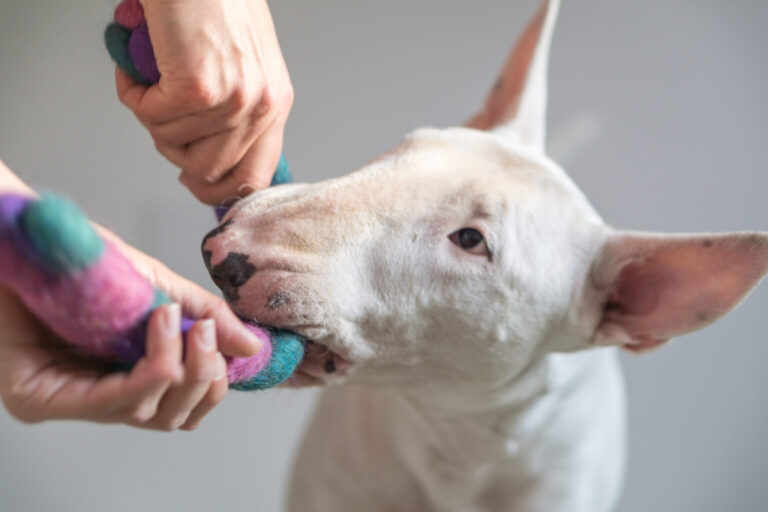
In Japan, training Bull Terriers can be relatively easy with the right approach. This breed, known for its independence and occasional stubbornness, requires consistent and patient handling, a quality highly valued by Japanese owners. Positive reinforcement, using rewards and praise, is emphasized in Japan, enhancing the learning enthusiasm of Bull Terriers and enabling them to quickly master new commands.
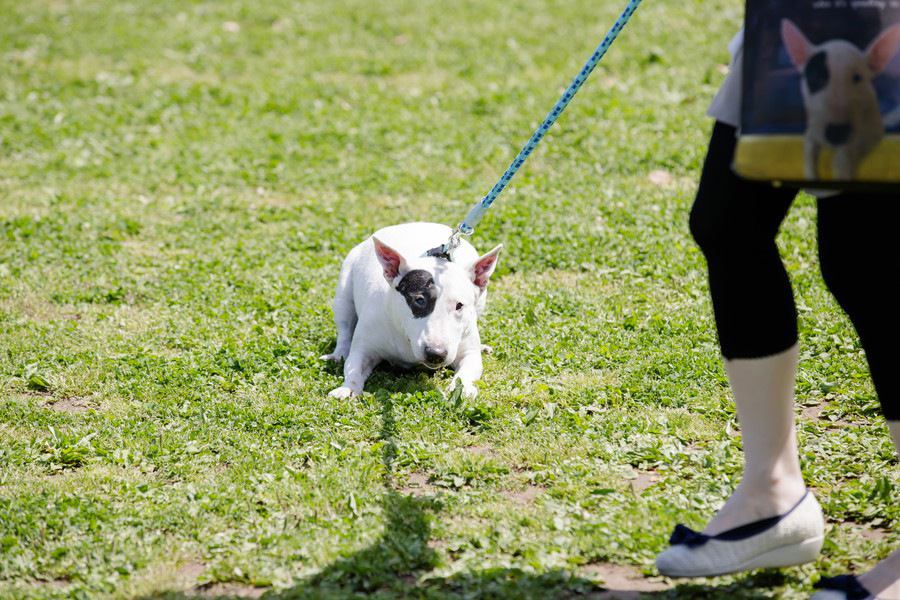
Particularly responsive to playful learning, viewing training as a fun activity is key to success. Additionally, the importance of socialization training from an early age is recognized in Japan. Exposing Bull Terriers to various environments, people, and other dogs is recommended to develop a well-balanced temperament.
Exercise
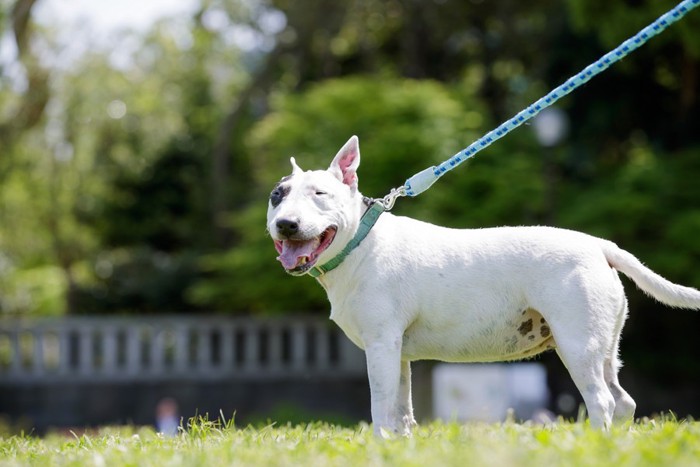
In Japan, meeting the high exercise needs of Bull Terriers is considered a significant responsibility for owners. Regular vigorous exercise is essential for these energetic dogs to reduce stress and prevent behavioral problems. Japanese owners consistently ensure daily walks and provide opportunities for running wherever possible.
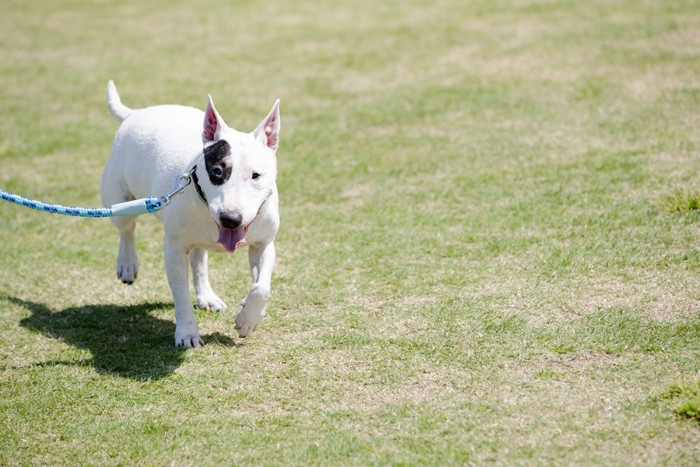
Free play in parks or large spaces, along with active games like ball play and frisbee, are especially vital for maintaining the physical and mental health of Bull Terriers. Furthermore, exercise is seen as a crucial means of socializing Bull Terriers in Japan, effectively fostering good relationships with other dogs and people.
Feeding
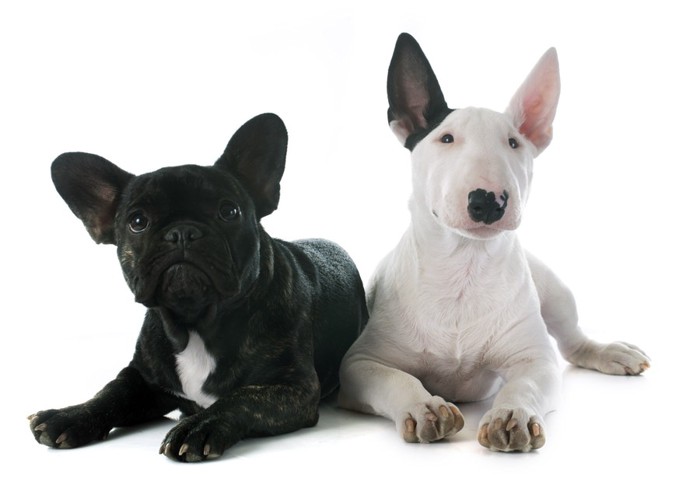
In Japan, managing the diet of Bull Terriers is considered crucial for maintaining their health. This energetic breed is recommended a diet rich in high-quality protein. Within the Japanese pet care culture, proper weight management is emphasized, necessitating careful monitoring of calorie intake.
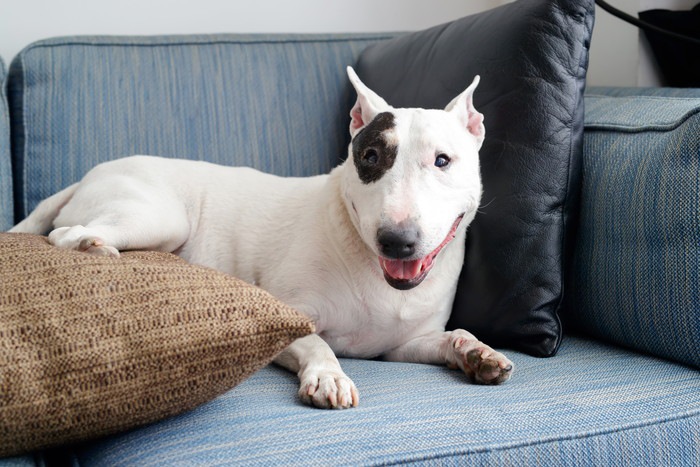
Obesity, which can strain joints and the heart, is a particular concern, hence regular weight checks and diet adjustments during adulthood are advised. Furthermore, avoiding ingredients that could cause food allergies is an important consideration for Japanese owners of Bull Terriers, known for their susceptibility to such allergies.
Temperament
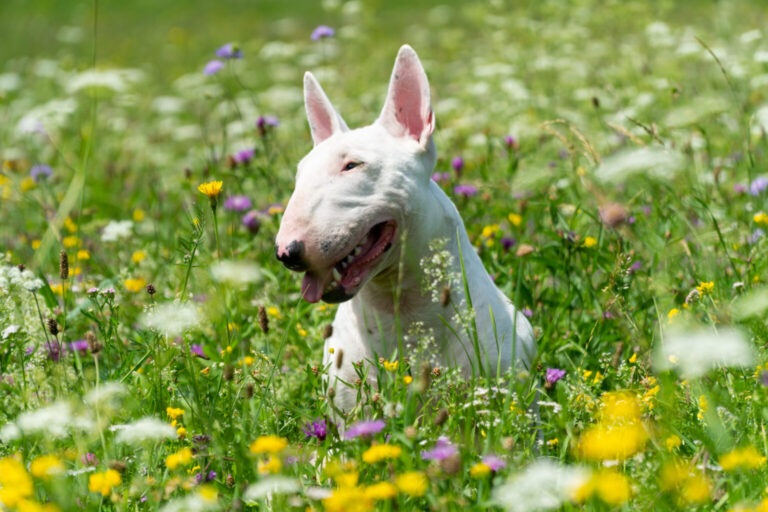
In Japan, the Bull Terrier is respected for its brave history while its affectionate nature and playful demeanor are highly valued in modern times. In Japanese households, this breed’s ability to form strong relationships with children is especially appreciated.
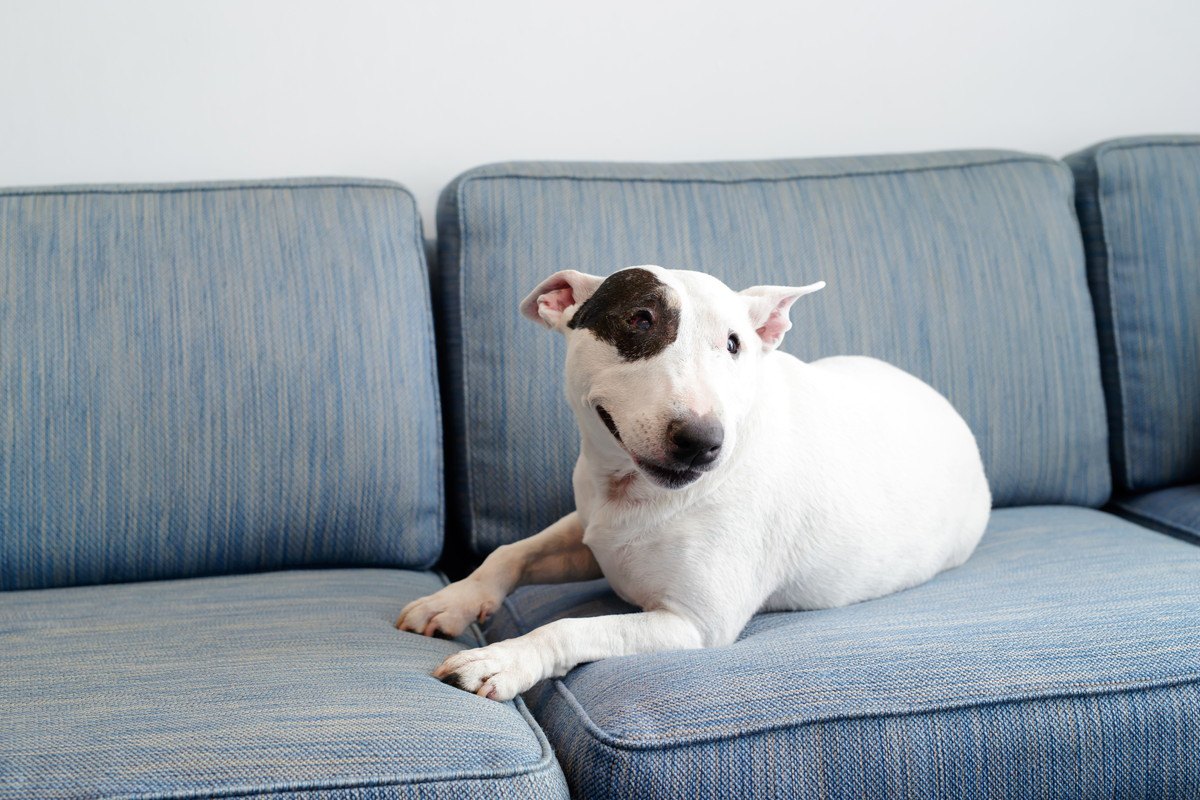
Moreover, in Japan, both training and affection towards dogs are considered crucial. This approach is believed to overcome the Bull Terrier’s stubbornness, bringing out its qualities as a loyal and obedient family member. However, this energetic breed requires proper exercise and socialization, which Japanese dog owners are expected to integrate into their daily routines.
The Bull Terrier, with its emphasis on strong familial bonds, aligns well with the Japanese culture of valuing close family ties, making it an ideal household pet.
History
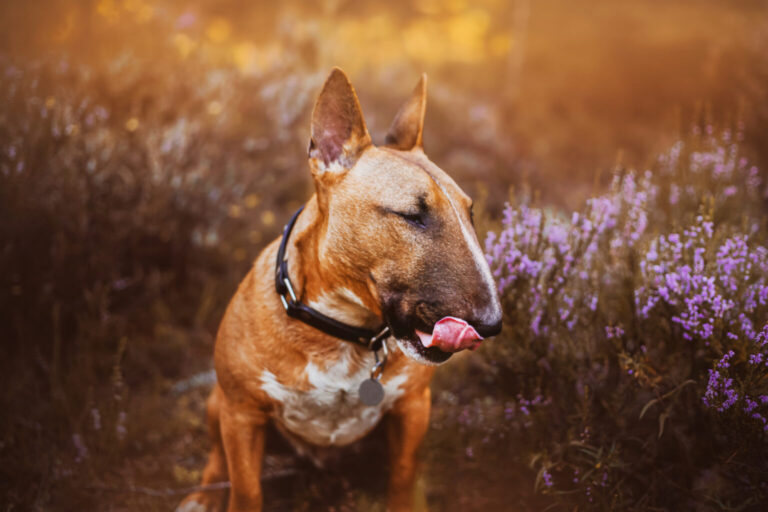
The Bull Terrier, originating in early 19th-century England, is embraced in Japan for its unique evolution, resonating with the local admirers of the breed. Japanese dog enthusiasts highly regard the robust physique and agility resulting from the crossbreeding of Bulldogs and Terriers.
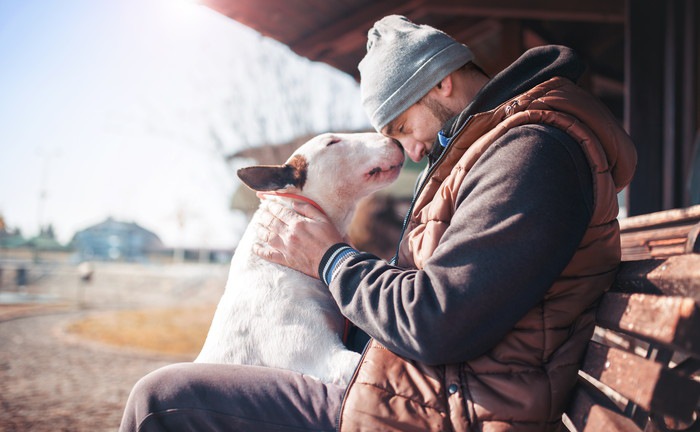
Despite its origins as a fighting dog, the Bull Terrier’s transformation into a gentle family pet symbolizes the importance of the role pets play in Japanese households. In Japan, pets are cherished as family members, and the distinctive appearance and charming character of the Bull Terrier contribute to deepening this affection.
The history of this breed narrates the evolution of the relationship between pets and humans, continuously revalued by Japanese dog lovers for its significance.
Grooming
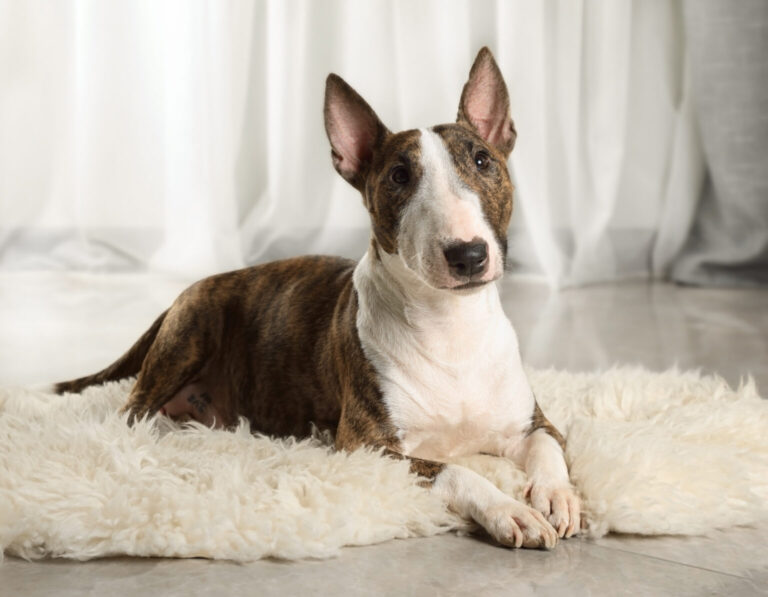
Grooming a Bull Terrier aligns well with the busy lifestyle in Japan, characterized by its simplicity and minimal effort required. This breed’s short coat makes daily care in Japanese households an easy task, with just once-a-week brushing to maintain coat health.
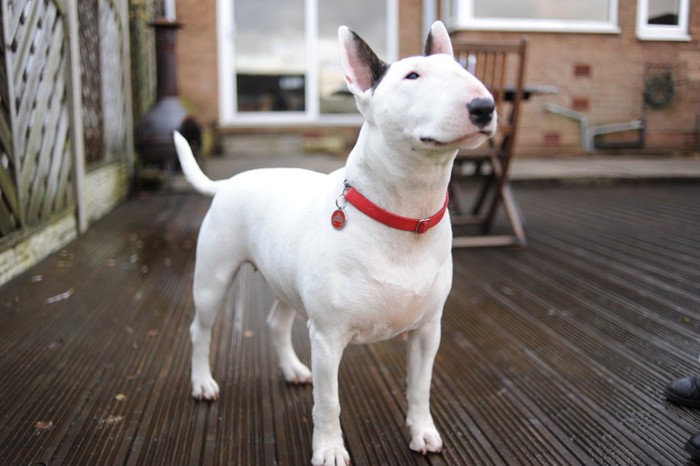
Keeping dogs clean is highly valued in Japan, and the Bull Terrier’s mud and dirt-resistant coat reduces the need for frequent baths, with once a month being sufficient. Regular ear cleaning and nail trimming are essential parts of pet care in Japan, especially ear cleaning is crucial. Proper grooming is a key element in supporting the health and comfort of a Bull Terrier in Japanese families.
Health
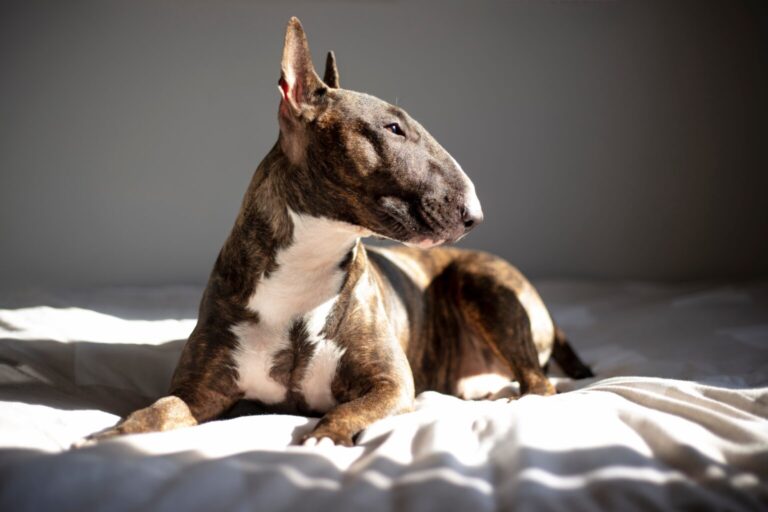
In Japan, special attention to certain health issues in Bull Terriers is highly emphasized. This breed is prone to skin conditions, particularly allergic dermatitis, necessitating careful management of environmental and dietary allergens. Japanese Bull Terrier owners also show a keen interest in heart diseases and joint issues, especially the dislocation of the kneecap.
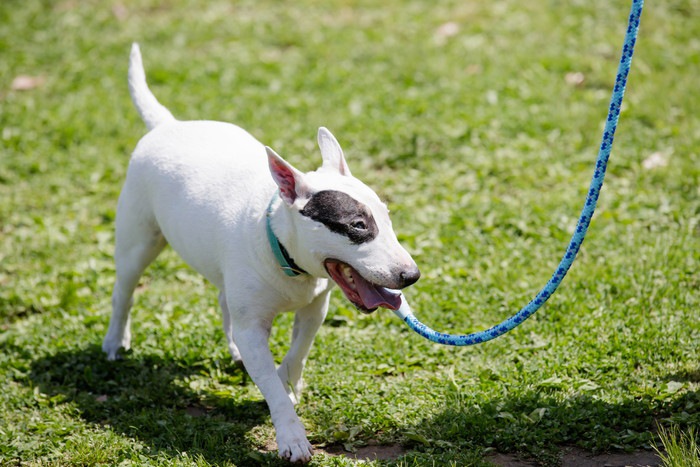
In Japan, there is a heightened consciousness regarding pet health care, highlighting the importance of regular health check-ups, proper exercise, and a balanced diet. This approach helps minimize the risk of these health issues and maintain the well-being of Bull Terriers.

